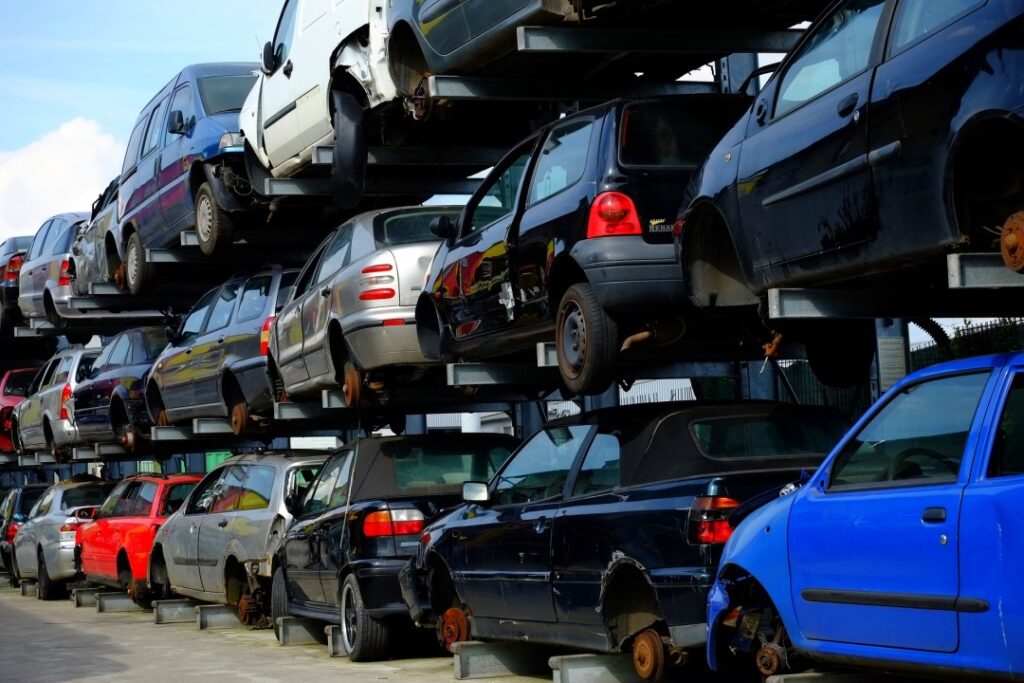Scrapping old cars has become an increasingly important practice in today’s environmentally conscious world. Reducing air pollution is one of the most immediate and noticeable benefits of scrapping old cars. Older vehicles often have less advanced emission control systems, leading to higher levels of harmful pollutants released into the atmosphere. Scrapping old cars allows for the recovery and recycling of valuable materials. Modern recycling techniques can salvage up to 95% of a car’s components, including metals, plastics, and glass.
Preventing soil and water contamination
Old cars left to deteriorate in junkyards or abandoned areas can leak harmful fluids such as oil, coolant, and brake fluid into the soil and nearby water sources. Properly scrapping these vehicles can prevent these toxic substances from contaminating the environment. Professional scrap yards are equipped to safely drain and dispose of these fluids, ensuring they don’t pollute our ecosystems.
Promoting the adoption of cleaner technologies
Removal of old, inefficient vehicles from the roads encourages the adoption of newer, more environmentally friendly cars. By using cleaner technologies, climate change can be combated, and transportation sectors can be made more sustainable. By extending the life of car materials through recycling, we can reduce the overall carbon emissions associated with vehicle production. This circular economy approach helps to minimize waste and decrease the environmental impact of the automotive sector as a whole.
Improving urban spaces
Scrapping old cars can have a positive impact on urban environments. Abandoned vehicles often become eyesores in neighbourhoods, taking up valuable space and potentially attracting crime or vandalism. By removing these vehicles through proper scrapping processes, our communities can be made more appealing, and space can be freed up for more productive uses, such as green spaces or community facilities.
Using the circular economy principle to scrap old cars is in line with scrapping them. As opposed to the linear “take-make-dispose” model, scrapping allows materials to be recirculated back into the production cycle.
Energy conservation and resource management
Recycling metals from scrapped cars requires significantly less energy than extracting and processing raw materials. For instance, recycling aluminium uses only about 5% of the energy needed to produce new aluminium from bauxite ore. This energy saving translates to reduced carbon emissions and a smaller environmental footprint. This conservation is crucial for rare earth metals used in modern vehicle components, as their extraction often involves environmentally damaging processes.
Supporting the green economy
The car scrapping industry plays a vital role in the green economy. It creates jobs in environmentally friendly sectors, from collection and dismantling to recycling and remanufacturing. These green jobs contribute to economic growth while simultaneously promoting environmental sustainability. As the importance of ecological protection grows, industries like car scrapping become increasingly valuable to our economic and environmental well-being.
Environmental benefits of scrapping old cars are numerous and significant. As awareness grows about the importance of proper vehicle disposal, more people are choosing to Sell Old and Scrap Cars Perth and other cities worldwide, contributing to a cleaner, healthier environment for all. Individuals can reduce their environmental impact by participating in responsible car scrapping programs.

